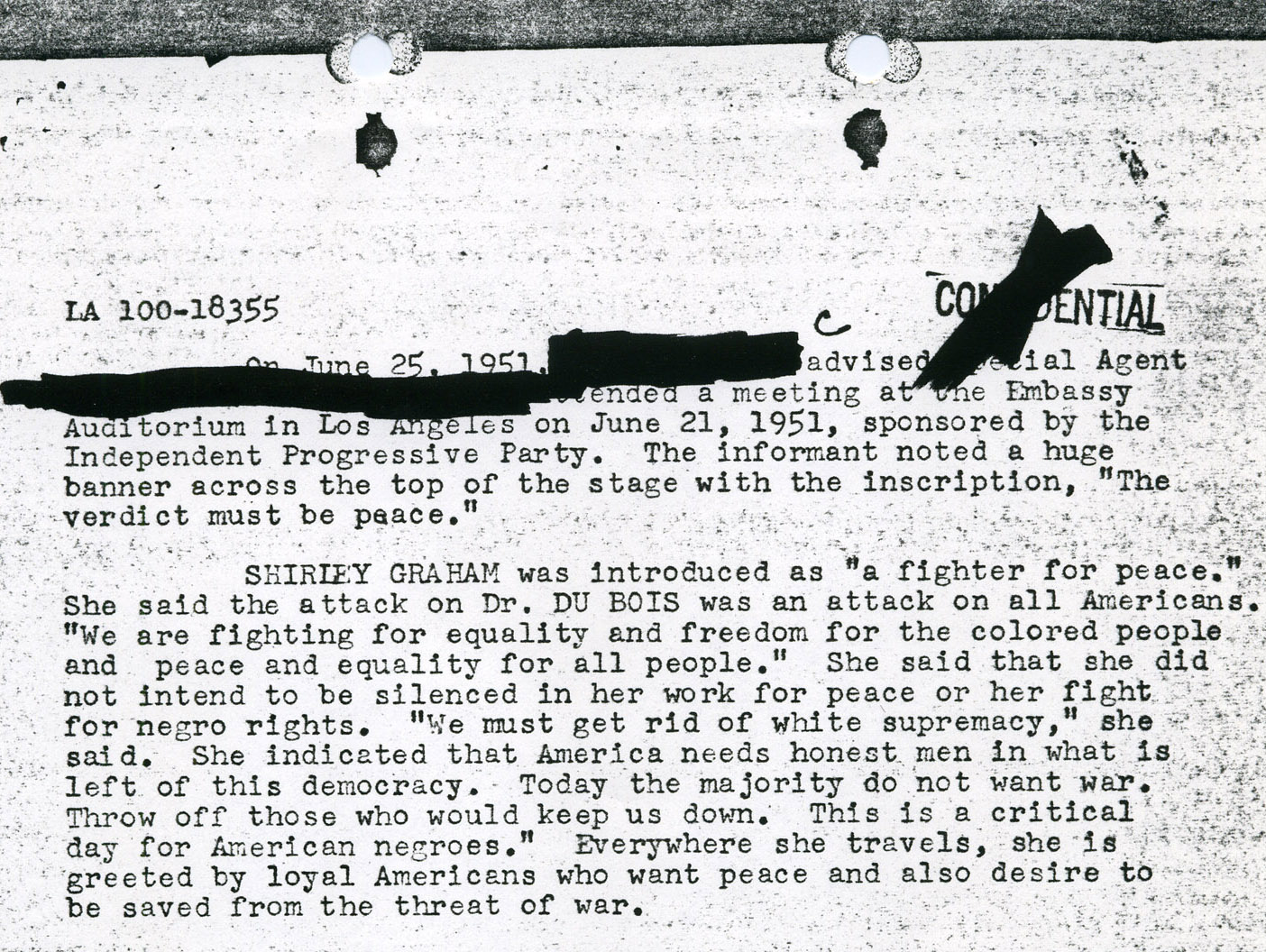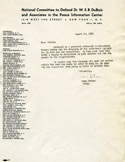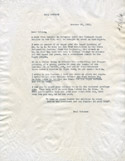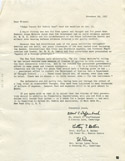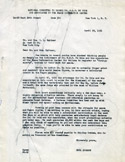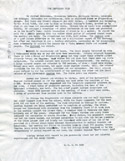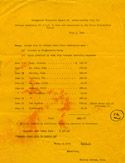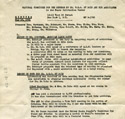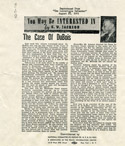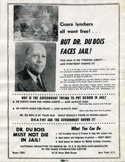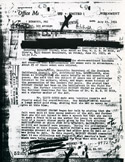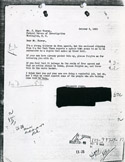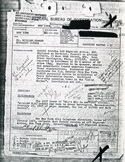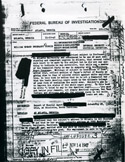
Defending Peace: W.EB. Du Bois in the McCarthy Era
W.E.B. Du Bois (1868-1963) was an activist, scholar, and international spokesman for peace and the rights of oppressed people. At the height of the McCarthy Era, Du Bois and four associates were indicted by the Department of Justice. They were charged with failing to register their organization, the Peace Information Center (PIC) with the federal government. PIC was run by a small group of activists who demanded American nuclear disarmament and promoted peace. If convicted, Du Bois and others faced up to five years in prison, and a $10,000 fine.
Du Bois and his supporters responded to the indictment quickly. They formed the National Committee to Defend Dr. W.E.B. Du Bois and Associates. The committee publicized, in their view, the unfair persecution of a prominent black intellectual, and raised funds to cover legal fees. Although the charges against Du Bois were eventually dismissed, the finding aid [link] to the Du Bois papers notes, “the attack by an arm of his own government was a bitter experience.”
This selection of documents from the Du Bois papers includes excerpts from Du Bois' FBI files as well as letters, advertisements, and editorials from the National Committee. The FBI documents make it clear that he was being investigated well before PIC was formed. They show that Du Bois' indictment was largely the result of the anti-Communist hysteria, and not his failure to register the PIC.
The charges against Du Bois and other members of the PIC were eventually dismissed, but, as the finding aid [link] to the Du Bois papers notes, “the attack by an arm of his own government was a bitter experience.”
Connect to Credo for more Du Bois digital content
Lesson plan (pdf)
National Committee to Defend Dr. W.E.B. Du Bois and Associates
These documents illustrate not only the kind of rhetoric that Du Bois' defenders to make his case, but also some of the tools for grassroots organizing available to activists in the early 1950s.
Federal Bureau of Investigation
The University of Massachusetts Amherst requested Du Bois' FBI files under the Freedom of Information Act.










